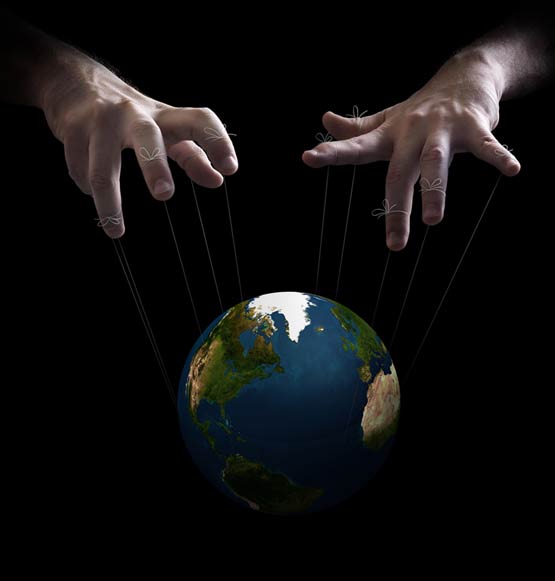
— Maimonides
“Throughout the entire year a person should always view himself as equally balanced between merit and sin and view the world as equally balanced between merit and sin.”
The cosmetics company Elizabeth Arden makes a skin cream called Visible Difference. I don't know if it works, but it's a great marketing ploy. It suggests that you will see a noticeable difference after use.
It's also a great tagline for this season of repentance. When you say you're going to change, when you beat your chest in contrition, when you forgive someone else, will there be a visible difference? If repentance is done right, you should be able to see the change in yourself and so should others. If you have truly forgiven another person, there should not be residual discomfort in his or her presence but a return to a warm and loving intimacy.
When it comes to Yom Kippur, it's all about the returning, the recovery of relationships between ourselves and the Divine, ourselves and others, ourselves and the person we diminished when we were too hard on ourselves.
How can we make a visible difference in ourselves this coming year?
We turn to the medieval philosopher Maimonides. He collected the laws of teshuva, repentance, and wove them into a masterful ten chapter compilation.
Many have the custom of studying one chapter per day for the ten days between Rosh Hashana and Yom Kippur. This year, I keep thinking about chapter three and the expression "visible difference."
Maimonides writes clearly and succinctly that "every person has merits and sins. If his merits exceed his sins, he is righteous. If his sins exceed his merits, he is wicked, and if they are half and half, he is an 'in-between'"[a benoni in Hebrew]. Maimonides believed that just as this is true for an individual, is it true for a country and for the entire world.
This formula for repentance is simple. All we have to do is make sure that our merits exceed our wrongdoings, and we are good. We are actually righteous.
But here's the problem that Maimonides introduces. It's a game of numbers, but we have no idea how the point system works.
Some transgressions are so terrible that they are equivalent to many good deeds. And some of the good we do is so good that it knocks off many sin points. When put on a scale, not every demerit and merit is equal.
Later in the chapter, Maimonides says that the Divine also gives us a slight handicap for goodness, even though we are still unsure of how to measure ourselves. To add to this dilemma, Maimonides says that the only one who knows how this grading system works is the Almighty, and the Almighty is not talking.
And that is the point.
Maimonides wants us to view ourselves as if we are in the in-between category all of the time. We cannot write ourselves off for the wrongs that we do because our goodness may exculpate us.
We cannot rest confident in our goodness because our wrongdoings get the better of us sometimes. But if we walk in the world constantly wondering how to accrue more goodness points and ask ourselves if we have counterbalanced an act of cruelty, carelessness, slander or neglect with a double dose of kindness, mercy, sensitivity or selflessness, chances are we will lead a noble life indeed.
Maimonides adds one more critical detail to this perspective on change based on a passage of Talmud: "Since the world is judged by the majority [of its merits and sins] and the individual is similarly judged by the majority, if one does a mitzva, good be upon him. He has pulled himself and the entire world to the side of merit. But if he commits even one sin, he pulls himself and the entire world to the side of demerit" [Talmud, Kiddushin 40b].
In other words, when we measure our deeds we are not acting as independent agents. With each act of goodness we do, we tip the scales for ourselves and the entire world. Maimonides understood something that we often dismiss: the power of one small act of goodness to change the world.
It is time to ask ourselves what are the metrics we will use this year to assess a visible difference in ourselves, our own point system.
Instead of your BMI (body mass index), think of a SMI (soul mass index). What are the numbers that I need to change in my spiritual world to tip the scales for myself and others? More minutes in prayer, more blessings, more hours of Torah study, more time devoted to children or friends more time visiting the sick, less time speaking or thinking ill of others? If we don't measure goodness in any way, how will we make a visible difference in 5774?
We are moments away from the Day of Judgment. Take a few minutes of quiet today to write a brief list of a five arenas where you need to make a visible difference. Write down where you are now and where you'd like to be.
And remember that when you do even one act of goodness, you pull yourself further on the scale of merit --- and the entire world comes with you.
Comment by clicking here.
Dr. Erica Brown is a writer and educator who lectures widely on subjects of Jewish interest. She is scholar-in-residence for the Jewish Federation of Greater Washington, DC and a consultant to other Jewish organizations. Dr. Brown is the author of Confronting Scandal, Spiritual Boredom and Inspired Jewish Leadership and co-author of The Case for Jewish Peoplehood. Her "Weekly Jewish Wisdom" column has appeared regularly in The Washington Post. She lives with her husband and four children in Silver Spring, MD.



 Contact The Editor
Contact The Editor
 Articles By This Author
Articles By This Author